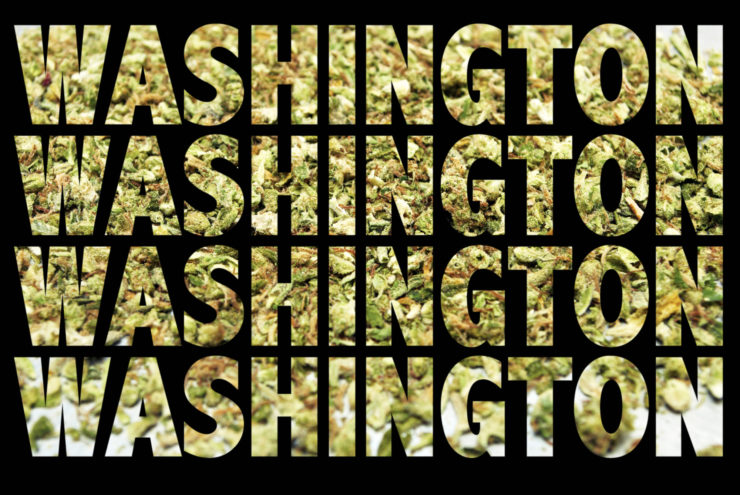
23 Jan State of the State: Washington Regulators Turning a New Leaf (Part 1)

Last year brought significant changes to Washington cannabis via the legislative session. Today I’ll outline some of the ways the Washington State Liquor and Cannabis Board (“LCB”) plans to regulate marijuana in 2020. Before I get into the details let me please encourage you to check out Cannabis Observer, who goes to every LCB meeting and provides details free of charge each week online.
This is part one in a two-part series. Today we’ll outline changes related to how the LCB is going to handle potential violations. Next, we’ll dive into penalties related to marijuana violations. In both cases, I’ll be analyzing proposed rules so things are subject to change.
Senate Bill 5318 went into effect last year and requires that the LCB move over from an enforcement-based approach to marijuana regulation to a compliance-based approach. In light of SB 5318, the LCB is retooling its rules, codified at WAC 314-55 et seq. In November 2019, LCB Policy and Rules coordinator Kathy Hoffman issued a paper (link provided by Cannabis Observer) on enforcement of marijuana regulations. Hoffman’s paper outlined the directives of SB 5138:
- Specified when the Board may issue a notice of correction under a technical assistance program. This rule proposal establishes and frames the notice of correction; a separate rule project is underway to establish the technical assistance program in alignment with the directives of ESSB 5318;
- Expanded on existing programs for compliance education;
- Required rule making regarding penalties, with limits, such as the effect of
cumulative violations; - Specified the types of violations that may result in license cancellation;
- Required consideration of aggravating and mitigating circumstances;
- Provides that the terms of a settlement agreement entered into by a licensee and hearing officer or designee of the Board be given substantial
weight by the Board; - Allowed a licensee to correct violations unrelated to public health and safety within a reasonable amount of time.
The LCB has proposed or amended several sections of WAC 314-55 following these directives. Yesterday (January 22, 2020) the LCB adopted rules relating to marijuana penalties. The following are some highlights of the substantial changes and the new rules can be found here (thanks again to Cannabis Observer):
- New Section: WAC 314-55-502 – Notice of Correction – This will create a process for the LCB to issue notices of correction(“NOC”) to marijuana licensees in lieu of civil penalties. The NOC would state the noncompliant condition in detail including the regulation at issue, a statement of what is required to achieve compliance and a date when compliance must be met, a contact for technical assistance from the LCB, notice of when, where, and to whom a request to extend the time to achieve compliance for good cause should be filed. The rule states that a NOC is not an enforcement action but if a licensee doesn’t comply with a notice, the LCB may issue an administrative violation notice (“AVN”).
- Amended Section: WAC 314-55-505 – Administrative Violation Notice – This rule outlines when the LCB may forego a NOC and issue an AVN, under three specific scenarios:
- When a licensee has previously been given notice of or been subject to, an enforcement action for the same or similar violation of the same statute or rule;
- When compliance is not achieved by the date established by the Board in a previous notice of correction and if the Board has responded to a request for review of the date by reaffirming the original date or establishing a new date; or
- When the Board can prove beyond a preponderance of the evidence that any of the following violations have occurred;
- Diversion of marijuana product to the illicit market or sales
across state lines; - Furnishing marijuana product to minors;
- Diversion of revenue from the sale of a marijuana product to criminal enterprises, gangs, cartels, or parties not qualified to
hold a marijuana license based on criminal history requirements (it’s significant that this is based on criminal history meaning that NOC would still need to be issued for revenues diverted to parties not qualified to hold a marijuana license for other reasons, such as residency); - The commission of nonmarijuana-related crimes; or
- Knowingly making a misrepresentation of fact related to
conduct or an action that is, or is alleged to be, any of the
preceding four violations.
- Diversion of marijuana product to the illicit market or sales
- New Section: WAC 314-55-5055 – Resolution Options – This rule will replace WAC 314-55-510, which currently governs a licensee’s options after an AVN is issued. The rule describes a licensee’s options for responding to an AVN including timelines (20 days to respond) and penalties for failing to pay monetary fines. The rule states that the LCB will not renew a license if there are two or more outstanding monetary fines in a two-year period, which may not comply with SB 5318 which states that LCB rules “[m]ay include cancellation of a license for cumulative violations only if a marijuana licensee commits at least four violations within a two-year period of time;” which is now codified at RCW 69.50.562 (1)(c). It seems likely that a court will eventually rule on whether the LCB’s decision not renew is a license cancellation. The rules also outlines how to request a settlement conference, what’s included in a settlement agreement, and how to defer a penalty.
It’s reassuring to see the LCB implementing a policy that favors compliance over enforcement. Stay tuned next week for part two in the series!


Sorry, the comment form is closed at this time.